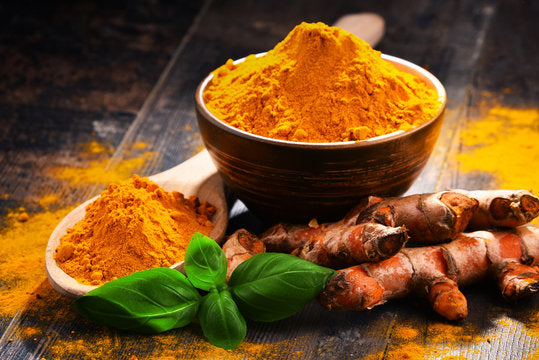The Benefits of Curcumin

Last week, we highlighted the four primary ingredients of our Pain Formula Plus and the various health benefits they provide. But what if we told you that one of the main ingredients is derived from something you likely have in your kitchen? Curcuma longa is also known as turmeric, which has been used for thousands of years as a spice in various Southeast Asian cuisine, particularly in India. As it grew in popularity throughout the world, studies have shown that curcumin, a prominent compound of turmeric, contains significant anti-inflammatory properties and can be used for various medical applications.

Inflammation is associated with the development of many chronic diseases and ailments including cerebral injuries, asthma, cancer, bronchitis, psoriasis, and one of the most notable conditions: arthritis. When used on people suffering from osteoarthritis, curcumin was shown to be more effective in relieving pain than the placebo used, and was even found to have similar remedies to non-steroidal anti-inflammatory drugs (NSAIDs) such as ibuprofen and naproxen. During a study of 539 patients suffering from rheumatoid arthritis, curcumin was shown to significantly reduce pain and inflammation due to its ability to halt the activity of free radicals* and decrease the oxidative stress that they cause in the body.

When working in tandem with corydalis, frankincense, myrrh, and PEA, curcuma longa provides a natural remedy for pain and inflammation that can hold its own against any commercially available options. If you’re interested in an effective alternative to over-the-counter painkillers, take a look at our Pain Formula Plus and try for yourself!
*Free radicals are highly reactive compounds produced within the body. An imbalance between free radicals and antioxidants in the body can cause oxidative stress associated with diseases such as heart disease, cancer, and inflammatory conditions such as arthritis.
Peng, Y., Ao, M., Dong, B., Jiang, Y., Yu, L., Chen, Z., Hu, C., & Xu, R. (2021, November 2). Anti-inflammatory effects of curcumin in the inflammatory diseases: Status, limitations and countermeasures. Drug design, development and therapy. https://www.ncbi.nlm.nih.gov/pmc/articles/PMC8572027/
Kou, H., Huang, L., Jin, M., He, Q., Zhang, R., & Ma, J. (2023, May 31). Effect of curcumin on rheumatoid arthritis: A systematic review and meta-analysis. Frontiers in immunology. https://www.ncbi.nlm.nih.gov/pmc/articles/PMC10264675/
Hewlings, S. J., & Kalman, D. S. (2017, October 22). Curcumin: A review of its effects on human health. Foods (Basel, Switzerland). https://www.ncbi.nlm.nih.gov/pmc/articles/PMC5664031/#B9-foods-06-00092
Dix, M. (2018, September 29). Oxidative stress: Definition, effects on the body, and prevention. Healthline. https://www.healthline.com/health/oxidative-stress
